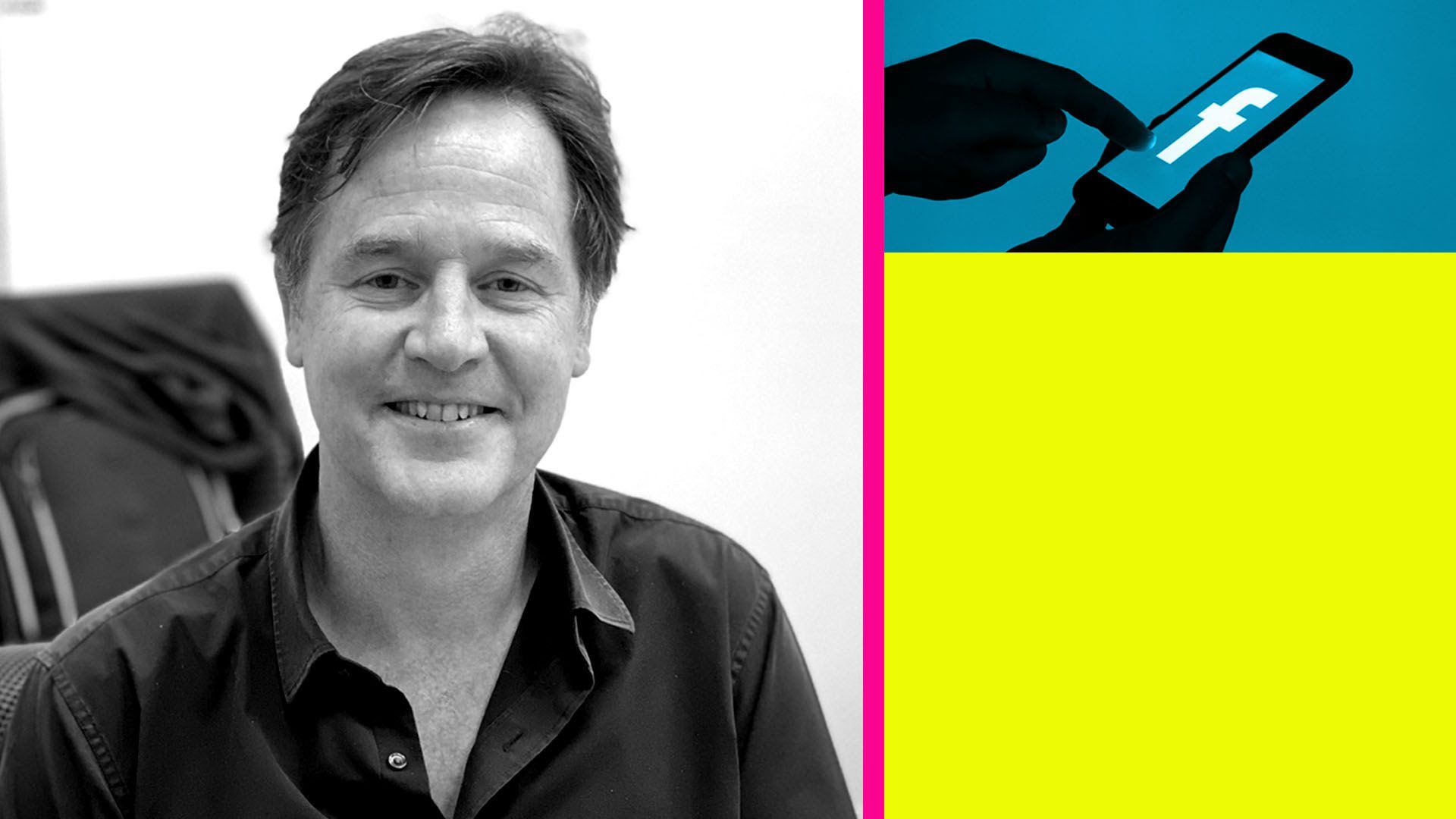Nick Clegg, the voice of Facebook, on dismembering versus regulation
Add Axios as your preferred source to
see more of our stories on Google.

Photo illustration: Axios Visuals. Photo via Ina Fried/Axios. Photo illustration: Chesnot/Getty Images
Don't "dismember" Facebook — regulate it better. That's the prescription for a better future for Big Tech from Nick Clegg, the former U.K. deputy prime minister who now heads Facebook's communications and policy efforts.
Driving the news: Clegg sat down with Axios for an hour-long interview last week at Facebook HQ in Menlo Park, ahead of his appearance later today at the Atlantic Festival in Washington, D.C.
Why it matters: As Facebook's fate lies increasingly in politicians' hands, the company has turned to a former politician to craft a defense.
The big picture: Clegg's message balances two goals:
- Appealing to regulators around the world, who are eager to rein in tech companies.
- Protecting Facebook's broader ambitions from the most extreme antitrust penalties.
"We genuinely don’t think dismembering FB or dismembering Amazon or dismembering Google is actually going to solve some of these underlying problems about data use, about privacy, about election integrity."— Nick Clegg
Better rules may be less eye-catching than splitting up companies, Clegg argues. But he insists we'll see a better outcome by working on a single set of regulations governing privacy and other key issues and guiding all companies toward a safe, fair and open Internet.
- "Otherwise, the likelihood is we will look back in in 5 to 10 years' time and realize that, if through perfectly laudable motives, we accidentally ended up Balkanizing the internet altogether," he said.
He points to Europe's GDPR standards as one answer that's already being implemented at a large scale (and which Facebook has said it will largely apply globally, in any case).
What he's saying: Clegg painted Facebook and the other big tech companies as "American success stories" and noted the irony that their home country was furthest down the road in talking about "dismembering" them.
- "As a European politician and former deputy prime minister, we would give our right arm for just one of these companies."
- "I come as a non-American to this job and say these are great American companies ... competing head-to-head with major global competitors, most of them based in China."
In summoning China, Clegg brings up the argument most likely to win political support for Big Tech in the U.S. — that the nation is locked in a global business battle.
At the same time, Clegg tried to make the case that the internet need not and should not turn into a collection of fiefdoms. He noted that he was just in India, where regulators have proposed legislation that would require companies to store data from Indian consumers there.
- "How we respondent to firewalls being erected in China and elsewhere will set the trend lines for the data era for decades to come. We are right in the middle of that. The fight for the soul of the Internet is happening right now."
Clegg knows that people want to see action from Facebook, not just more words.
"There are lots of things for which Facebook has had to apologize, for which Facebook needs to prove it has learned its lesson and that things are going to change," he said.
Yes, but: Facebook isn't slowing down and waiting for trust to revive. It is plunging further into two of people's most sensitive areas: their homes and their wallets.
I asked Clegg why Facebook is charging ahead with both Libra, a Facebook-led cryptocurrency, and new Portal devices, essentially a bid to fill homes with Facebook developed-cameras and microphones.
- On Libra, Clegg pointed to the 1.7 billion people around the world who lack a bank account.
- "The vision for Libra is to create more access to better, cheaper, and open financial services — no matter who you are, where you live, what you do, or how much you have," he said.
- "But we will take the time to get this right and are committed to fully addressing regulators' concerns and receiving appropriate approvals before launch."
